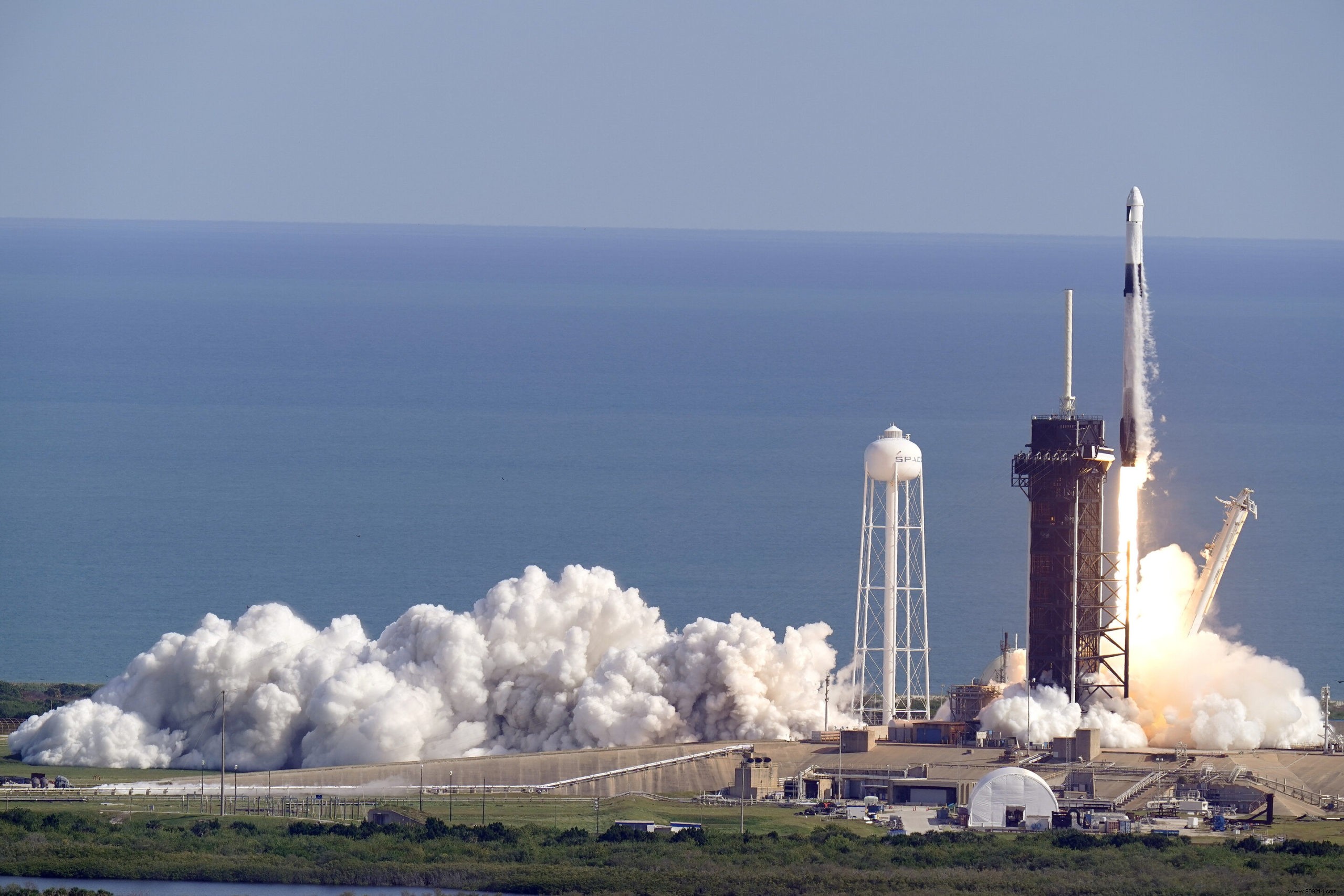This Saturday, SpaceX successfully launched a new cargo mission to the International Space Station. For the occasion, the company has deployed a new version of its Crew Dragon capsule. It is also the first time that two of these vessels have docked with the ISS.
A SpaceX Falcon 9 rocket lifted off this Saturday from NASA's Kennedy Space Center at 5:17 p.m. (French time), marking the company's 21st cargo mission on behalf of the American agency and its 24th launch of the year .
About nine minutes later, the first stage of the Falcon successfully returned to Earth, landing on one of the company's ships deployed off the Atlantic. This booster, named B1058, had already flown three times before this assignment. It's also the first time NASA has relied on a booster with more than one flight under its belt. Proof, once again, that the American agency is more and more comfortable with the reuse of SpaceX components.
That said, this new "CRS-21" mission was also and above all marked by the first flight of SpaceX's new "improved" cargo capsule:the "Cargo Dragon 2". . This, like the previous one, aims to transport food, water, scientific experiments and other materials to the laboratory in orbit.
As part of this mission, the payload of more than 2.9 tons included samples of crashed asteroids for a biomining study, and a new medical device to provide rapid blood test results for astronauts in space. About 40 mice were also delivered to study the effects of microgravity on bone density and ocular degradation, two weak points of astronauts during long space stays.
The ship is a modified version of the one deployed to transport humans to the space station. Here the seats, the cockpit controls, the life support system and the Super Draco thrusters used as an emergency escape system in the event of a problem during the launch have been removed. Instead, you will find a dozen motorized lockers containing all the material to be delivered. This is twice as much as before.
This new ship is also designed to be salvaged and prepared for repeated flights faster than its predecessor. It is also capable of autonomously connecting to the station, rather than having to be grabbed by a robotic arm and attached to a port as was previously the case.

With this ship now docked to the ISS, there are now two SpaceX capsules attached to the laboratory in orbit. This new cargo capsule, therefore, and the Crew Dragon "Resilience" launched on November 15 with four astronauts on board.
This new cargo capsule will leave the station in about a month, bringing back to Earth all the equipment the astronauts no longer need. She will then land in the middle of the Atlantic. Again, this is another change. Until now, SpaceX cargo ships were landing in the Pacific. Landing closer to Cape Canaveral will save time.
The second capsule, for its part, will remain stowed for another five months , before bringing four astronauts back to Earth.